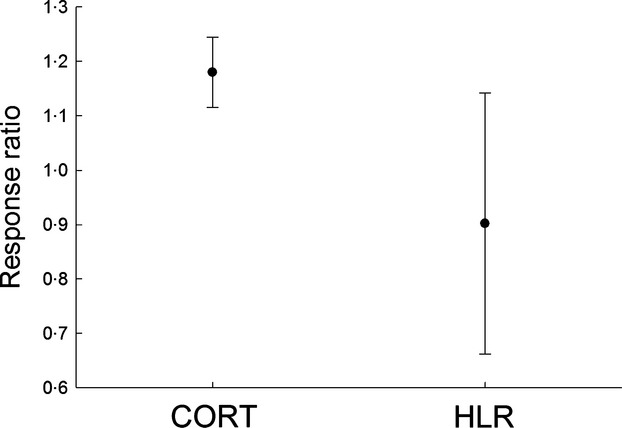Keyword: global change

Goessling, J. M., H. Kennedy, M. T. Mendonça, and A. E. Wilson. 2015. A meta-analysis of plasma corticosterone and heterophil:lymphocyte ratios – Is there conservation of physiological stress responses over time? Functional Ecology 29:1189-1196.
Abstract
- There is growing need for reliable biomarkers of the physiological stress response in basic ecological investigations and conservation-specific applications. One effect of stress hormone secretion is the alteration of circulating leucocytes, specifically an increase in the heterophil : lymphocyte ratio (HLR). There have been numerous studies and reviews of the relationship between the stress response and HLR, yet the data have not been systematically analysed across studies.
- Here, we performed meta-analyses of studies in which paired values of plasma corticosterone (CORT) and HLR were available to investigate the relationship between these parameters. Specifically, we analysed CORT and HLR as baseline measures between treatment (or ‘stressed’ populations) and control (or ‘reference’ populations). Additionally, we investigated the relationship within CORT and HLR to identify temporal patterns of the response as a result of the duration of the stressor.
- Across studies, we identified that CORT and HLR are significantly elevated in populations subjected to environmentally stressful conditions. While not significantly different, CORT tended to be more elevated than HLR in the stressed populations.
- We found that there is a significant, negative relationship between CORT and the temporal duration of environmental stress. Additionally, we found a significant break point in this response at 85 days of stress duration, above which there is not a clear relationship between CORT and duration. This indicates that the CORT response to environmental stress attenuates.
- We found a small but positive significant relationship between HLR and temporal duration of environmental stress. This suggests that the elevation of HLR in response to environmental stress does not decrease over time.
- Our data identified that data gaps of wild populations of species exist and that more studies pairing physiological stress responses will further our understanding of how populations respond to environmental challenges. We found that CORT and HLR responded differently to stress, depending on captivity status, whether the study population was the domestic chicken, and the sex of the study population.